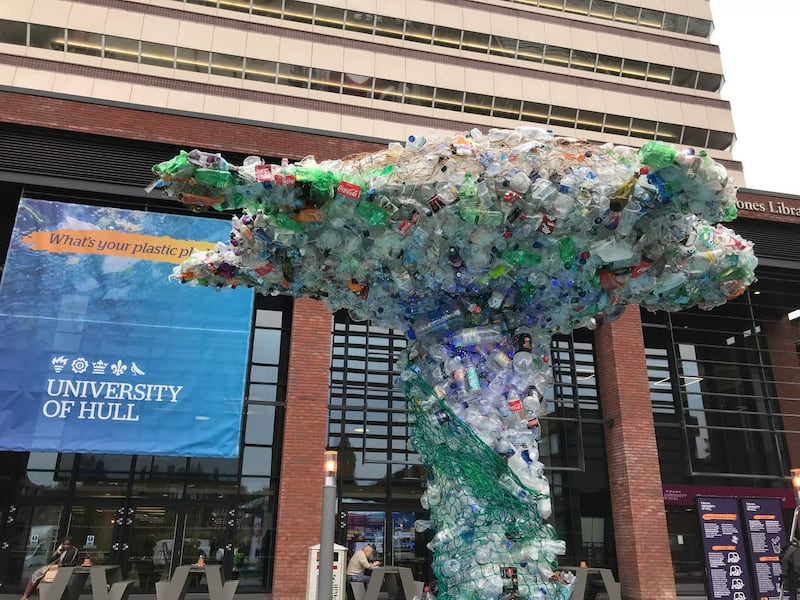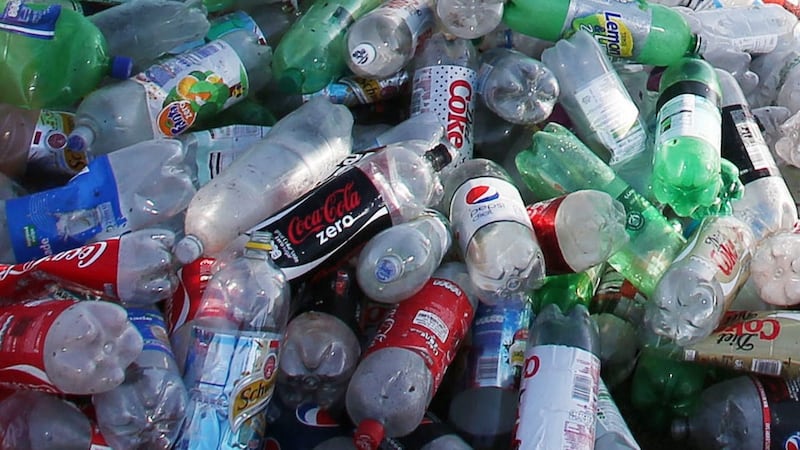Fossilised plastic preserved in rocks will remain as a stark reminder of our polluting age for millions of years to come, an expert has said.
Like the bones of long dead dinosaurs, plastic in the geological record could become the defining hallmark of our era, according to Professor Dan Parsons.
It might even be said that we are living in The Age of Plastic – or as one journalist quipped at a British Science Festival briefing, the “Plastocine”.
Prof Parsons responded: “I like that, I’m going to steal that one.”
Dan Parsons @bedform “In the 1980s a hole was discovered in the ozone layer of the atmosphere, and there was a coming together of scientists and policy makers to find out what was happening and find a solution” Will we see this again in the case of plastics? @UniOfHull #BSF18 pic.twitter.com/mAsKAmSqS8
— British Science Fest (@BritishSciFest) September 13, 2018
But the professor, director of the Energy and Environment Institute at the University of Hull, had a serious point to make.
The Earth’s history is divided up into large chunks of time, or epochs, based on the geological record.
Currently we still live in the Holocene epoch, but some experts believe a new time period should now be recognised called the Anthropocene.
This would recognise the impact humans have had on the planet.
The question is what in the geological record should mark the boundary between the two epochs.
One idea is to make it the preserved fall-out left behind by nuclear testing. But another might be plastic, said Prof Parsons.

Speaking at the University of Hull, which is hosting the science festival, he said: “The sort of thing I think about as a geologist is what’s the legacy of this for the future.
“As we move from what we know as the Holocene into what’s now termed the Anthropocene, what’s the imprint of human activity on the geological record of earth?
“Fast forward 10 million years from now and when we look back in the strata of rocks from this time we’ll see a couple of things.
“We’ll see peaks in radioactive isotopes from nuclear testing and we’ll see a load of plastics, mineralised into the rock record.
“That’s going to be our legacy in the future when the geologists 10 million years in the future are looking back on us as a society.
“So I think there are some really profound things to think about.”
The meeting was told of the results of a YouGov survey conducted for the University of Hull which showed that 92% of the population were concerned about the impact plastic pollution in the oceans will have on future generations.
More than three quarters of those questioned (78%) wanted to reduce their use of single-use plastics.
However, 65% of people said they were confused about what they can recycle.
The online survey was conducted in July and recruited 2,001 participants.








